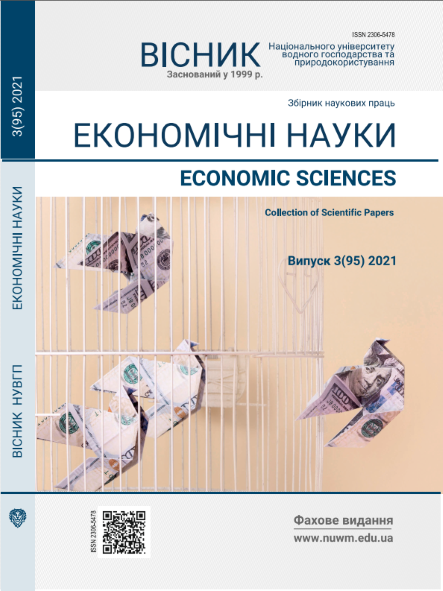INTELLECTUAL MIGRATION: ESSENTIAL CHARACTERISTICS AND IMPACT ON THE COUNTRY’S ECONOMIC GROWTH
DOI:
https://doi.org/10.31713/ve320218Keywords:
migration, knowledge, intellectual migration, population, brain drain, brain growth.Abstract
The article investigates the essence of the concept of «intellectual migration». An important factor in the spread of intellectual migration is the global shortage of talent in the era of the knowledge economy. Related terms in the field of intellectual migration are analyzed: brain drain, brain growth, brain circulation, brain loss, brain return, brain replacement. Migrants can bring important knowledge to their destination country, as they often have additional skills and innovative ideas that help improve business processes and increase productivity. It is determined that economically developed countries are increasingly competing in attracting and retaining talented workers, in particular by adopting a more favorable migration policy for the best and brightest talents. To determine the relationship between the attractiveness of highly educated workers and economic growth, the basic indicator of estimating who is the gross national income per capita, the authors conducted a correlation analysis based on data from 20 OECD countries in 2019. The relationship between these indicators is close and direct: as the country’s attractiveness for the arrival of highly skilled workers increases, the gross national income per capita increases.Economically developed countries contribute to the attraction of highly qualified migrants. At the same time, studies show that intellectual migration is caused more by «gravity» factors in host countries than by «push» factors from highly skilled labor donor countries. Therefore, to strengthen the competitiveness of their countries and economic prosperity, governments need to use various methods to stimulate the involvement of highly qualified migrants. The arrival of highly qualified migrants replenishes the intellectual capital of the recipient countries.References
World Migration Report 2020. International Organization for Migration. URL: https://publications.iom.int/system/files/pdf/wmr_2020.pdf (дата звернення: 07.09.2021).
Mueller Ch. Migration & knowledge transfer. NVVN. URL: https://nvvn.nl/migration-knowledge-transfer/ (дата звернення: 07.09.2021).
Manpower Group Employment Outlook Survey Q3 2021. Global Results. Manpower Group. URL: https://go.manpowergroup.com/hubfs/Talent%20Shortage%202021/MPG_2021_Outlook_Survey-Global.pdf (дата звернення: 07.09.2021).
Островський І. А., Рибак Г. І. Освітні аспекти міжнародної інтелектуальної міграції. Науковий вісник Ужгородського національного університету. 2019. Вип. 25. С. 42–45.
Давидюк Л. П. Інтелектуальна міграція трудових ресурсів в умовах глобалізації. Ефективна економіка. 2019. URL: http://www.economy.nayka.com.ua/pdf/11_2019/71.pdf (дата звернення: 07.09.2021).
Малиновська О. А. Міграційна політика: глобальний контекст та українські реалії : монографія. НІСД, 2018. 472 с.
Talent Attractiveness. OECD. URL: https://www.oecd.org/migration/talent-attractiveness/ (дата звернення: 07.09.2021).
World Development Indicators database. World Bank. URL: https://databank.worldbank.org/data/download/GNIPC.pdf (дата звернення: 07.09.2021).
Власова Т. Р. Міжнародна інтелектуальна міграція: від «відпливу умів» до їх циркуляції. Демографія, економіка праці, соціальна економіка та політика. 2020. Вип. 1–2. С. 315–325.

